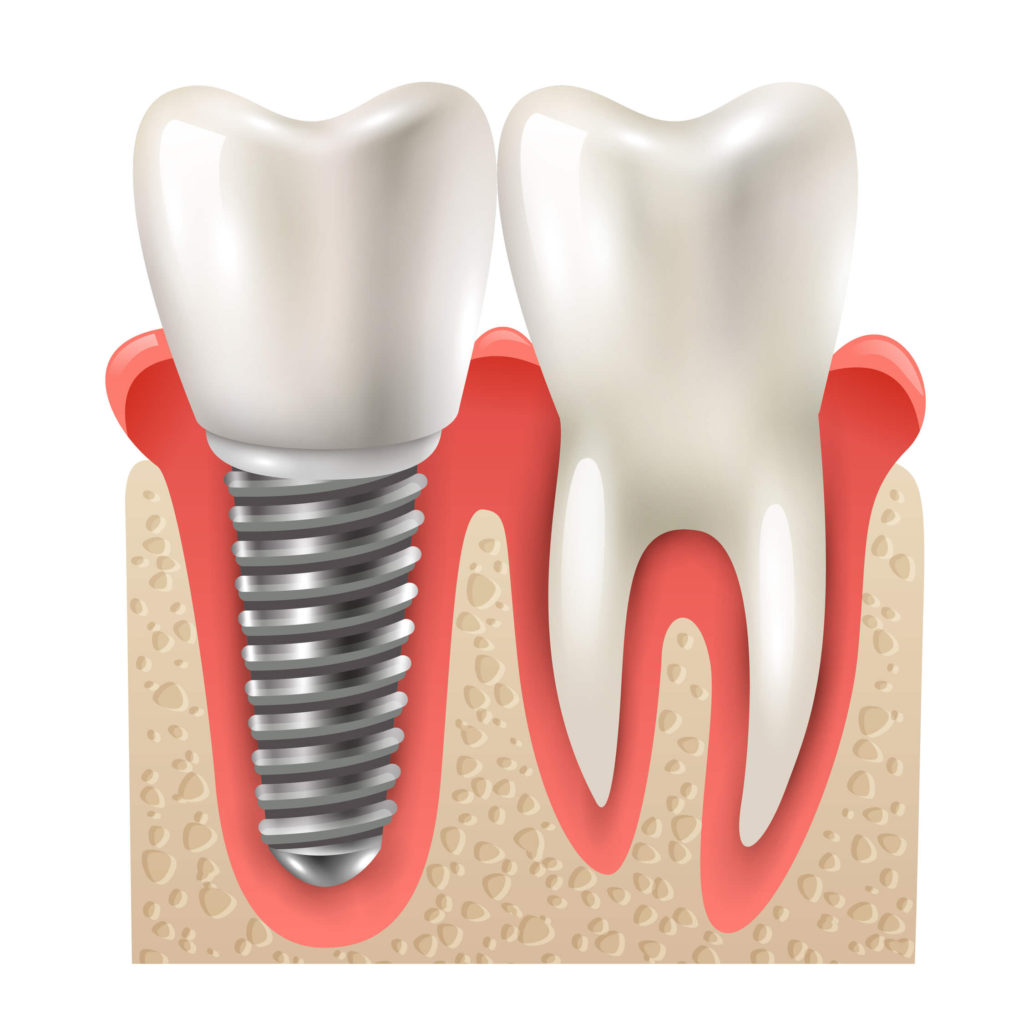What Are Dental Implants?

Dental implants are artificial tooth roots made of titanium that are surgically placed into the jawbone to serve as a replacement for missing or damaged teeth. The implant is securely fused onto the jawbone, providing a stable base for attaching permanent crowns, bridges, and dentures. They look and function just like natural teeth and can last a lifetime with proper care and maintenance.
Implants vs. Dentures & Bridges
Implants offer several advantages over traditional treatments such as dentures or bridges. For one thing, they are much more secure than other options and can be relied on to stay in place. They also help preserve healthy bone structure, as the implant acts similar to a tooth root and stimulates the jawbone to prevent it from deteriorating. Additionally, implants do not require adjustments over time like dentures do—once placed, they can last for many years without any further care.
A bridge is a permanent fixture, doesn’t come in and out of the mouth. Requires a tooth in front and behind, and putting crowns on those two teeth. You are unable to floss, and requires special care and materials to clean underneath bridge. Health is dependent on the teeth holding the bridge in place. Partial denture is held in with clasps and replaces missing teeth. It comes in and out of the mouth and uses support from the gums and teeth to stay in place.
Who is Suitable for Dental Implants?
Dental implants may be suitable for any adult who has lost one or more teeth due to injury, trauma, decay, or periodontal disease. In addition, the patient must have good oral health and sufficient bone mass in the jaw to support the implant. Your dentist can help determine if you are a candidate for dental implants during an initial consultation. Remember, it is important to inform your dentist of any medical conditions before undergoing treatment as some conditions may impact your eligibility for dental implants.
How to Take Care of Dental Implants?
In order to keep dental implants in good condition, it is important to practice proper oral hygiene habits. This includes brushing a day with fluoride toothpaste (you don’t necessarily need fluoride toothpaste for implants but still good to use for the other teeth) and flossing to remove plaque and bacteria from the implant. Oral hygiene is still important with implants, gum disease can lead to implant failure, so hygiene is still very important regardless of implant/tooth. Additionally, regular dental checkups are great for monitoring the health of your implants and detecting any potential problems early on. It is also advisable to avoid foods that may cause damage to the implant or attached crowns or bridges. With proper care, dental implants can last a lifetime and help you maintain a confident smile!
Risks
It is important to note that there are some risks associated with dental implants. These include infection, nerve damage, pain in the jawbone, and implant failure. Your dentist will discuss these risks with you during the consultation to help ensure you understand all of the possible outcomes before proceeding with the procedure.
Overall, dental implants can be an excellent solution for replacing missing or damaged teeth. They are secure, long-lasting, and will help restore your confidence in your smile. Be sure to discuss all of the risks and benefits with your dentist before proceeding with treatment. With the right care, you can enjoy a beautiful and healthy smile for years to come!
Contact 512 Smiles
If you think dental implants may be right for you, contact our office today about scheduling a consultation! You can call us at 512-835-9557 or schedule an appointment with our online form.
